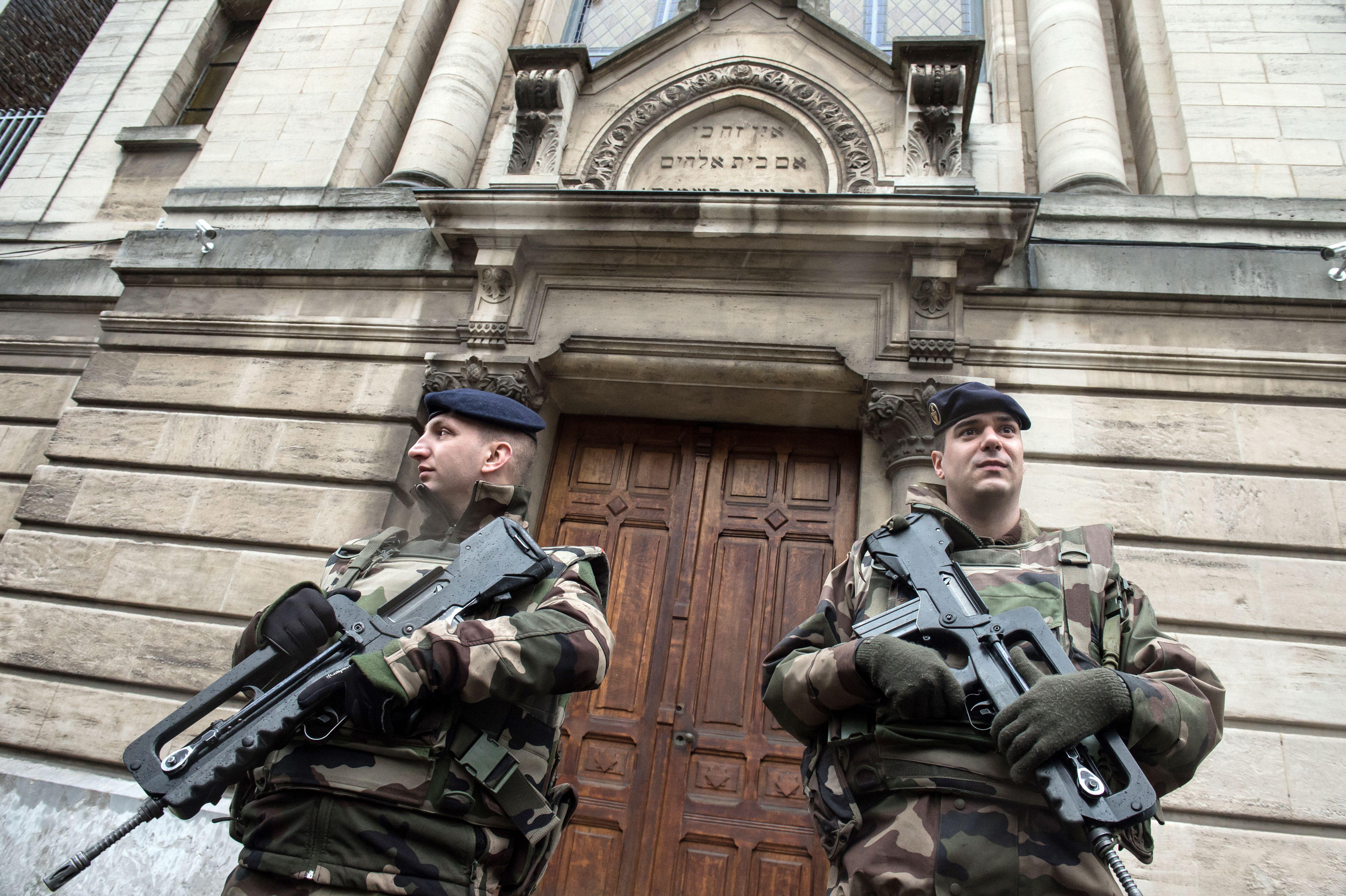France’s prime minister, Manuel Valls, has announced that the government is proposing new laws to allow for tighter surveillance of terrorist suspects. And in one sign of the current atmosphere, a man convicted of drunken driving had his sentence upped to four years in part for a rant praising the attacks.
The government is also beefing up domestic security by deploying 10,000 troops around the country. Many of them will be guarding Jewish sites, which had come under increasing threat even before last week’s hostage crisis at a kosher grocery store in Paris.
These moves are all the more striking considering that French counterterrorism forces already have some of the most sweeping powers in the democratic world.
Since a wave of terrorist bombings in the 1980s, France has continually expanded the authority of counterterrorism investigators, known as investigative magistrates, to order wiretaps and hold suspects for long periods of time without charges. These expansive powers have at times made France the envy of some foreign observers and governments. As an American Enterprise Institute report on France’s counterterrorism prowess noted ruefully in 2007, “one of the things the French do well—and perhaps the hardest thing for Americans to appreciate, let alone adopt—is granting highly intrusive powers to their internal security service, the Direction de la Surveillance du Territoire (DST), and to their counterterrorist investigative magistrates (juges d’instruction).” (As it turned out, secret American courts were granting surveillance powers far broader than anyone realized back in 2007.)
Under the French legal system, these investigative magistrates (a position without a U.S. counterpart) work closely with intelligence services in a much cozier relationship than that between investigators and the courts in the United States. As active participants in investigations, these judges can quickly order wiretaps or “preventative detention” of suspects. And they do: At various times police have arrested large numbers of suspects on “fishing expeditions” to investigate terror plots. France also deported 129 alleged extremists between 2001 and 2010, a period during which Britain deported just nine.
French investigators are also known for their skill at gathering human intelligence and inside information on terrorist groups. Their approach is controversial. Allegations of racial bias and police brutality are common, but, as Frank Foley, a counterterrorism researcher at Kings College London, writes in the Telegraph this week, “The police in France are not overly concerned about Arab or Muslim community sentiment.” Human Rights Watch recently criticized French travel restrictions, under which individuals can be slapped with six-month travel bans if they are suspected of trying to go to a “zone where terrorist groups operate in conditions that could lead to a threat to national security.” In October, HRW called those rules too vague and said they were a violation of the freedom of movement.
But for a time, even civil libertarians had to concede that the French approach seemed to be effective. As Foley notes, between 1996 and 2012—the period that included 9/11 and London’s 7/7 attacks—there were no major terror attacks on French soil. Lately, however, some pretty big fish have slipped through the net. Mohammed Merah, the gunman who killed seven people in attacks on soldiers and a Jewish school in 2012; Mehdi Nemmouche, the French former ISIS fighter who opened fire on the Jewish Museum in Brussels last May; and of course the perpetrators of last week’s Charlie Hebdo shooting were all known to counterterrorism police before they carried out their attacks. These cases may begin to cast some doubt on the much-vaunted intelligence-gathering capabilities of the French counterterrorism authorities as well as raise questions about whether France’s tough-guy tactics are worth the antagonism they cause in the country’s Muslim community.
A similar dynamic is at work when it comes to France’s foreign policy. In contrast to that never-particularly-accurate Bush-era caricature of France as gun-shy appeasers, the French have been second only to the United States in their willingness to use military force abroad in the name of fighting terrorism. As a slightly overheated headline on one defense blog put it this week, “France Kicks Islamist Ass.” In addition to heading up the international effort to overthrow Muammar al-Qaddafi in 2011, participating in the war in Afghanistan, and the NATO coalition fighting ISIS, France, under both Nicolas Sarkozy and François Hollande, has frequently deployed troops to intervene in its former African colonies. Most notably, this included Operation Serval, the 2012–2014 military intervention to help the Malian government fight Islamist groups in the country’s north, which at one point involved 4,000 French troops. And in May, the Defense Ministry announced that 3,000 troops would be continually deployed to counter threats from extremists in North Africa’s Sahel region.
These interventions have been popular with French voters, and I suspect that this week’s attacks will only increase support for a hawkish foreign policy and even more robust counterterrorism operations whether or not either actually does much to protect the country from attacks.
Other governments are already using last week’s events in Paris as a pretext to argue for more expansive counterterrorism powers, but as France’s example shows, even the toughest counterterrorism rules are no guarantee of safety.
For other Slate coverage of the Charlie Hebdo shootings, click here.
